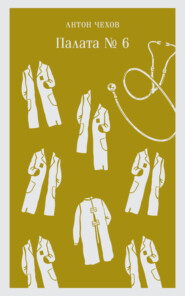По всем вопросам обращайтесь на: info@litportal.ru
(©) 2003-2024.
✖
The Lady with the Dog and Other Stories
Настройки чтения
Размер шрифта
Высота строк
Поля
"We women may not dare, it seems, to have views of our own."
"I give you full liberty to be as liberal as you like, and quote from any authors you choose, but make me one concession: don't hold forth in my presence on either of two subjects: the corruption of the upper classes and the evils of the marriage system. Do understand me, at last. The upper class is always abused in contrast with the world of tradesmen, priests, workmen and peasants, Sidors and Nikitas of all sorts. I detest both classes, but if I had honestly to choose between the two, I should without hesitation, prefer the upper class, and there would be no falsity or affectation about it, since all my tastes are in that direction. Our world is trivial and empty, but at any rate we speak French decently, read something, and don't punch each other in the ribs even in our most violent quarrels, while the Sidors and the Nikitas and their worships in trade talk about 'being quite agreeable,' 'in a jiffy,' 'blast your eyes,' and display the utmost license of pothouse manners and the most degrading superstition."
"The peasant and the tradesman feed you."
"Yes, but what of it? That's not only to my discredit, but to theirs too. They feed me and take off their caps to me, so it seems they have not the intelligence and honesty to do otherwise. I don't blame or praise any one: I only mean that the upper class and the lower are as bad as one another. My feelings and my intelligence are opposed to both, but my tastes lie more in the direction of the former. Well, now for the evils of marriage," Orlov went on, glancing at his watch. "It's high time for you to understand that there are no evils in the system itself; what is the matter is that you don't know yourselves what you want from marriage. What is it you want? In legal and illegal cohabitation, in every sort of union and cohabitation, good or bad, the underlying reality is the same. You ladies live for that underlying reality alone: for you it's everything; your existence would have no meaning for you without it. You want nothing but that, and you get it; but since you've taken to reading novels you are ashamed of it: you rush from pillar to post, you recklessly change your men, and to justify this turmoil you have begun talking of the evils of marriage. So long as you can't and won't renounce what underlies it all, your chief foe, your devil – so long as you serve that slavishly, what use is there in discussing the matter seriously? Everything you may say to me will be falsity and affectation. I shall not believe you."
I went to find out from the hall porter whether the sledge was at the door, and when I came back I found it had become a quarrel. As sailors say, a squall had blown up.
"I see you want to shock me by your cynicism today," said Zinaida Fyodorovna, walking about the drawing-room in great emotion. "It revolts me to listen to you. I am pure before God and man, and have nothing to repent of. I left my husband and came to you, and am proud of it. I swear, on my honour, I am proud of it!"
"Well, that's all right, then!"
"If you are a decent, honest man, you, too, ought to be proud of what I did. It raises you and me above thousands of people who would like to do as we have done, but do not venture through cowardice or petty prudence. But you are not a decent man. You are afraid of freedom, and you mock the promptings of genuine feeling, from fear that some ignoramus may suspect you of being sincere. You are afraid to show me to your friends; there's no greater infliction for you than to go about with me in the street… Isn't that true? Why haven't you introduced me to your father or your cousin all this time? Why is it? No, I am sick of it at last," cried Zinaida Fyodorovna, stamping. "I demand what is mine by right. You must present me to your father."
"If you want to know him, go and present yourself. He receives visitors every morning from ten till half-past."
"How base you are!" said Zinaida Fyodorovna, wringing her hands in despair. "Even if you are not sincere, and are not saying what you think, I might hate you for your cruelty. Oh, how base you are!"
"We keep going round and round and never reach the real point. The real point is that you made a mistake, and you won't acknowledge it aloud. You imagined that I was a hero, and that I had some extraordinary ideas and ideals, and it has turned out that I am a most ordinary official, a cardplayer, and have no partiality for ideas of any sort. I am a worthy representative of the rotten world from which you have run away because you were revolted with its triviality and emptiness. Recognise it and be just: don't be indignant with me, but with yourself, as it is your mistake, and not mine."
"Yes, I admit I was mistaken."
"Well, that's all right, then. We've reached that point at last, thank God. Now hear something more, if you please: I can't rise to your level – I am too depraved; you can't descend to my level, either, for you are too exalted. So there is only one thing left to do…"
"What?" Zinaida Fyodorovna asked quickly, holding her breath and turning suddenly as white as a sheet of paper.
"To call logic to our aid…"
"Georgy, why are you torturing me?" Zinaida Fyodorovna said suddenly in Russian in a breaking voice. "What is it for? Think of my misery…"
Orlov, afraid of tears, went quickly into his study, and I don't know why – whether it was that he wished to cause her extra pain, or whether he remembered it was usually done in such cases – he locked the door after him. She cried out and ran after him with a rustle of her skirt.
"What does this mean?" she cried, knocking at his door. "What … what does this mean?" she repeated in a shrill voice breaking with indignation. "Ah, so this is what you do! Then let me tell you I hate you, I despise you! Everything is over between us now."
I heard hysterical weeping mingled with laughter. Something small in the drawing-room fell off the table and was broken. Orlov went out into the hall by another door, and, looking round him nervously, he hurriedly put on his great-coat and went out.
Half an hour passed, an hour, and she was still weeping. I remembered that she had no father or mother, no relations, and here she was living between a man who hated her and Polya, who robbed her – and how desolate her life seemed to me! I do not know why, but I went into the drawing-room to her. Weak and helpless, looking with her lovely hair like an embodiment of tenderness and grace, she was in anguish, as though she were ill; she was lying on a couch, hiding her face, and quivering all over.
"Madam, shouldn't I fetch a doctor?" I asked gently.
"No, there's no need … it's nothing," she said, and she looked at me with her tear-stained eyes. "I have a little headache… Thank you."
I went out, and in the evening she was writing letter after letter, and sent me out first to Pekarsky, then to Gruzin, then to Kukushkin, and finally anywhere I chose, if only I could find Orlov and give him the letter. Every time I came back with the letter she scolded me, entreated me, thrust money into my hand – as though she were in a fever. And all the night she did not sleep, but sat in the drawing-room, talking to herself.
Orlov returned to dinner next day, and they were reconciled.
The first Thursday afterwards Orlov complained to his friends of the intolerable life he led; he smoked a great deal, and said with irritation:
"It is no life at all; it's the rack. Tears, wailing, intellectual conversations, begging for forgiveness, again tears and wailing; and the long and the short of it is that I have no flat of my own now. I am wretched, and I make her wretched. Surely I haven't to live another month or two like this? How can I? But yet I may have to."
"Why don't you speak, then?" said Pekarsky.
"I've tried, but I can't. One can boldly tell the truth, whatever it may be, to an independent, rational man; but in this case one has to do with a creature who has no will, no strength of character, and no logic. I cannot endure tears; they disarm me. When she cries, I am ready to swear eternal love and cry myself."
Pekarsky did not understand; he scratched his broad forehead in perplexity and said:
"You really had better take another flat for her. It's so simple!"
"She wants me, not the flat. But what's the good of talking?" sighed Orlov. "I only hear endless conversations, but no way out of my position. It certainly is a case of 'being guilty without guilt.' I don't claim to be a mushroom, but it seems I've got to go into the basket. The last thing I've ever set out to be is a hero. I never could endure Turgenev's novels; and now, all of a sudden, as though to spite me, I've heroism forced upon me. I assure her on my honour that I'm not a hero at all, I adduce irrefutable proofs of the same, but she doesn't believe me. Why doesn't she believe me? I suppose I really must have something of the appearance of a hero."
"You go off on a tour of inspection in the provinces," said Kukushkin, laughing.
"Yes, that's the only thing left for me."
A week after this conversation Orlov announced that he was again ordered to attend the senator, and the same evening he went off with his portmanteaus to Pekarsky.
XI
An old man of sixty, in a long fur coat reaching to the ground, and a beaver cap, was standing at the door.
"Is Georgy Ivanitch at home?" he asked.
At first I thought it was one of the moneylenders, Gruzin's creditors, who sometimes used to come to Orlov for small payments on account; but when he came into the hall and flung open his coat, I saw the thick brows and the characteristically compressed lips which I knew so well from the photographs, and two rows of stars on the uniform. I recognised him: it was Orlov's father, the distinguished statesman.
I answered that Georgy Ivanitch was not at home. The old man pursed up his lips tightly and looked into space, reflecting, showing me his dried-up, toothless profile.
"I'll leave a note," he said; "show me in."
He left his goloshes in the hall, and, without taking off his long, heavy fur coat, went into the study. There he sat down before the table, and, before taking up the pen, for three minutes he pondered, shading his eyes with his hand as though from the sun – exactly as his son did when he was out of humour. His face was sad, thoughtful, with that look of resignation which I have only seen on the faces of the old and religious. I stood behind him, gazed at his bald head and at the hollow at the nape of his neck, and it was clear as daylight to me that this weak old man was now in my power. There was not a soul in the flat except my enemy and me. I had only to use a little physical violence, then snatch his watch to disguise the object of the crime, and to get off by the back way, and I should have gained infinitely more than I could have imagined possible when I took up the part of a footman. I thought that I could hardly get a better opportunity. But instead of acting, I looked quite unconcernedly, first at his bald patch and then at his fur, and calmly meditated on this man's relation to his only son, and on the fact that people spoiled by power and wealth probably don't want to die…
"Have you been long in my son's service?" he asked, writing a large hand on the paper.
"Three months, your High Excellency."
He finished the letter and stood up. I still had time. I urged myself on and clenched my fists, trying to wring out of my soul some trace of my former hatred; I recalled what a passionate, implacable, obstinate hate I had felt for him only a little while before… But it is difficult to strike a match against a crumbling stone. The sad old face and the cold glitter of his stars roused in me nothing but petty, cheap, unnecessary thoughts of the transitoriness of everything earthly, of the nearness of death…
"Good-day, brother," said the old man. He put on his cap and went out.
There could be no doubt about it: I had undergone a change; I had become different. To convince myself, I began to recall the past, but at once I felt uneasy, as though I had accidentally peeped into a dark, damp corner. I remembered my comrades and friends, and my first thought was how I should blush in confusion if ever I met any of them. What was I now? What had I to think of and to do? Where was I to go? What was I living for?
I could make nothing of it. I only knew one thing – that I must make haste to pack my things and be off. Before the old man's visit my position as a flunkey had a meaning; now it was absurd. Tears dropped into my open portmanteau; I felt insufferably sad; but how I longed to live! I was ready to embrace and include in my short life every possibility open to man. I wanted to speak, to read, and to hammer in some big factory, and to stand on watch, and to plough. I yearned for the Nevsky Prospect, for the sea and the fields – for every place to which my imagination travelled. When Zinaida Fyodorovna came in, I rushed to open the door for her, and with peculiar tenderness took off her fur coat. The last time!
We had two other visitors that day besides the old man. In the evening when it was quite dark, Gruzin came to fetch some papers for Orlov. He opened the table-drawer, took the necessary papers, and, rolling them up, told me to put them in the hall beside his cap while he went in to see Zinaida Fyodorovna. She was lying on the sofa in the drawing-room, with her arms behind her head. Five or six days had already passed since Orlov went on his tour of inspection, and no one knew when he would be back, but this time she did not send telegrams and did not expect them. She did not seem to notice the presence of Polya, who was still living with us. "So be it, then," was what I read on her passionless and very pale face. Like Orlov, she wanted to be unhappy out of obstinacy. To spite herself and everything in the world, she lay for days together on the sofa, desiring and expecting nothing but evil for herself. Probably she was picturing to herself Orlov's return and the inevitable quarrels with him; then his growing indifference to her, his infidelities; then how they would separate; and perhaps these agonising thoughts gave her satisfaction. But what would she have said if she found out the actual truth?
"I love you, Godmother," said Gruzin, greeting her and kissing her hand. "You are so kind! And so dear George has gone away," he lied. "He has gone away, the rascal!"
He sat down with a sigh and tenderly stroked her hand.

















